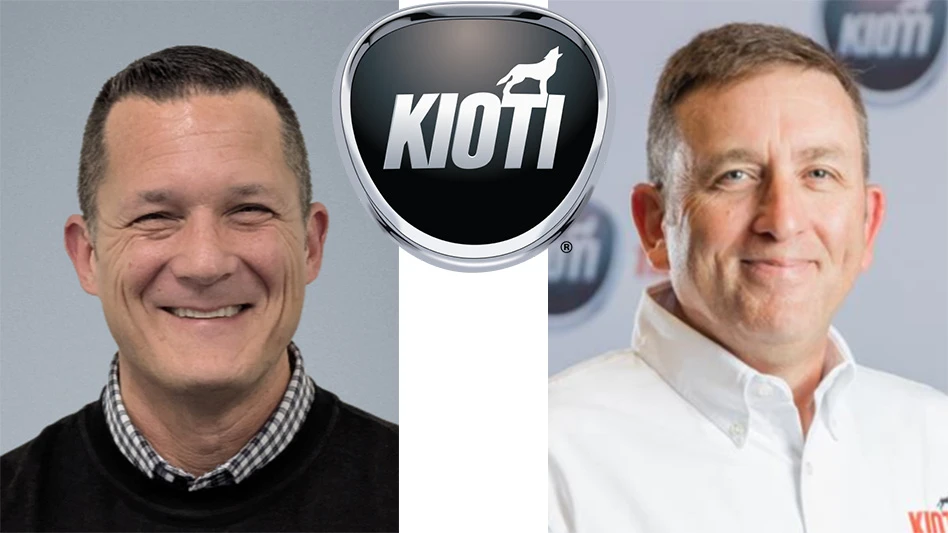Managing a maintenance crew of laborers is one thing, but managing the person who manages the crew is much different. It’s a challenge, especially when moving from the role of golf course superintendent to a position of managing superintendents and other key course personnel.
Bob Farren, CGCS, golf course and grounds manager for Pinehurst, the high-profile complex of eight 18-hole golf courses in Pinehurst, N.C., has been there almost 25 years, starting as a superintendent and moving to his current position in 1986. He supervises five golf course superintendents that manage the eight courses. All of his superintendents have a minimum of five years experience and as much as 15 years experience. Additionally, Farren oversees one grounds manager, one irrigation manager and one equipment manager.
“Having been a superintendent and still being a superintendent, it’s easy to feel that your way is the only way,” he says. “You have to get beyond that to give them the feeling of freedom to make their own decisions. But they have to know that with freedom comes accountability.”
Ray Davies, CGCS – director of golf course maintenance and construction and a senior operations manager for CourseCo, a golf management and development company based in California – oversees superintendents and general managers. Davies is one of the owners of the company so he has interest in all aspects of operations at all facilities, even though some general managers report to another operations manager.
“The biggest challenge is changing from being the technician in the field with personal control of everything on the course to managing others who now have that job and want, even need, that same control,” he says. “Hire good people and allow them the freedom you needed when you were running your own show. If those you manage see you as a competitor rather than a source of resources, they’ll avoid you. They’ll see every visit as micromanagement or something worse, a loss of their own personal leadership on that site.”
Dennis Lyon, CGCS, manager of golf for the city of Aurora, Colo., has worked for the city for the past 34 years. Aurora operates six 18-hole courses and one par-3 nine-hole course.
“The biggest difference in managing superintendents compared to crew members is delegation of responsibility,” he says. “I give superintendents bottom-line responsibility. This includes ensuring the course conditions are at the highest reasonable level. I’m also a resource for our superintendents and do everything I can within the organization to help them manage efficiently. I work through the organizational maze for them and try to keep them happy and productive in the field.”
Shawn Emerson, director of agronomy for Desert Mountain, a complex of six 18-hole courses in Scottsdale, Ariz., manages superintendents who are dedicated to each course. Two agronomists each supervise three of the courses. The agronomists have 15 to 25 years experience managing courses, and the superintendents have one to eight years of experience. At one point, Emerson worked as a superintendent at Desert Mountain. After two years at another course, he came back to Desert Mountain in his current position and has been there 12 years.
“The difficult part is I anticipate the problems sooner,” he says. “A superintendent just learning sees the road for the first time. I see further down the road to the first turn and beyond. The question is when do you let them learn on their own and fail and when do you step in to solve the problems without letting them occur? It’s hard to learn without failure, yet my job is to make sure Desert Mountain doesn’t fail.”
Establishing the systems
Operational systems vary for each manager, and they try to meet the needs of the courses within the limitations of available resources. For Lyon, that entails working with courses spread throughout the city of Aurora.
“There’s no prescription maintenance in our organization,” he says. “Each superintendent manages their own operation, including managing expenses, helping optimizing revenue and ensuring superior customer service from his staff. I don’t involve myself in day-to-day operations. My concern is the product we offer and how we’re doing financially.”
From an agronomic standpoint, all eight Pinehurst courses have to be consistent. Farren works out the overall program, and each of the superintendents provides budget input, which is developed into the central budget. Farren handles the purchasing, dealing with vendors. The superintendents manage the largest component of the budget – the payroll.
“They have a specific number of hours allocated per course per week, and it’s up to them to manage those hours,” he says. “All eight individuals have the same flexibility and the same level of management responsibilities. All handle the reviews for their people, satisfaction surveys for employees, disciplinary communications and guidelines to work within. It’s very important they manage those personnel areas with consistency so there’s no favoritism. We have to hold those same standards for everyone.”
Emerson manages by objectives. He has created A, B and C levels of delegation.
“At the A level, I’ll tell you what to do, and you follow my directions,” he says. “I use this for superintendents during their first 12 to 18 months here. At level B, you tell us what you want to do, and we’ll approve it. At level C, you tell us what you did. Each superintendent might have several levels going on in different areas of course management at the same time based on their technical skills and past experience.
“The expectations and the financial impact of decisions end up on my desk,” he adds. “Because of that, the superintendents don’t always get to see or feel the whole experience of being their own manager.”
For Davies, it’s about developing management strategies and teaching superintendents to do the same.
“I ask each superintendent to provide a golf course management plan that outlines their strategy and what they’re going to do to implement it,” he says. “Most of my questions come during review of this plan. I’ll ask how this year’s strategy differs from the one of the previous year, why it differs and what the changes will accomplish. My job is to understand their thought process in managing the resources they’re provided to obtain the desired course conditions that support the business plan.”
The budget is the cost of implementing the management plan, and Davies needs to make sure expectations are in line with the resources given to superintendents.
“The superintendent must understand our business objectives and what financial resources are consistent with that objective,” he says. “They see the full financials, including all departments, so they understand what other department’s goals and objectives are, as well as the resources they have to meet them. This helps them see how the budgets are interrelated, and the importance of operating within that budget. They need to understand how financial decisions are made by upper management and learn to appreciate the impact the owner’s perception of risk has on those decisions.”
Whatever the operational system, it’s up to the manager to make sure everyone clearly understands the goals and what’s expected of them.
“It goes beyond making sure everyone is on that page,” Emerson says. “If you’re a good manager and comfortable with yourself, you’ll listen to their input and incorporate it into your plan.”
Yet, for organizational success, it’s important to work together to clearly define organizational values.
“If everyone buys into the values, everyone knows what the organization expects of them and what they need to do to achieve success,” Lyon says.
And that success is bigger than any position.
“The superintendents tend to think of themselves as department heads rather than business managers,” Davies says. “The golf pro, g.m. and superintendent need to have a positive relationship and work together effectively. This is critical. I help them understand the difference between authority and influence and teach them to use influence to improve course operations. Authority and its misperception often interfere with good management.”
Coping with the inevitable
For upper-level managers, planning, observation and open communication can keep small problems from escalating into big ones.
“I tell my management team to call me when it’s bent, not when it’s already broken,” Farren says. “I need to know about problems to support them if an issue arises.”
Davies has a system that works well when problems occur.
“I’ll meet with the superintendent and ask a series of questions designed to help us understand our circumstances,” he says. “What’s the problem? What do we know? What additional information do we need? What resources can be brought to bear? What stakeholders need to know, and how can we get the information to them after we have a good understanding ourselves? I want to make sure the individual is working effectively, which is hard in a stressful situation. Often they’ll overreact. My goal is to help them deal with the stress, remind them of how good they are and get them to working a plan that addresses the problem effectively.”
But mistakes are inevitable, so managers need to develop strategies to deal with them and move beyond them.
“Don’t beat yourself up when you make mistakes, and don’t let your superintendents beat themselves up either,” Emerson says. “You have to admit you made the mistake, be honest about it, correct it, evaluate it, learn from it and don’t repeat it. Then pick yourself back up and move on or have people who can help you do that.”
Making it all work
Mutual respect is the key to making it all work, says Lyon, who considers himself a superintendent as well as the division manager.
“I consider the superintendents on staff more as colleagues than peers,” he says. “We work together to achieve common goals. I hold them all in high regard. I trust them, I like them, and I enjoy working with them.”
Two of the individuals Emerson supervises served as his bosses when he was a superintendent.
“I learned from them to surround myself with good, solid people,” he says. “These individuals helped guide my career and still serve as mentors for me in a lot of situations. It works because of mutual trust and respect.”
Having people who are personally competent is a must, Davies says.
“You need to know their strengths, leverage those strengths, and structure their department to make the weaknesses less relevant,” he says. “You need to determine if a deficiency is an innate trait, or if the person can acquire the competency. If they can, protect them from the weakness until they do.”
And as an upper-level manager, one has to be able to take the criticism when problems occur.
“You’re caught between what the members want and what the managers want to do and can do,” Emerson says. “You have to be able to take the heat. You can’t blame your managers. Managing them is your job.” GCI

Explore the April 2008 Issue
Check out more from this issue and find your next story to read.
Latest from Golf Course Industry
- PBI-Gordon promotes Jeff Marvin
- USGA investing $1 million into Western Pennsylvania public golf
- KemperSports taps new strategy EVP
- Audubon International marks Earth Day in growth mode
- Editor’s notebook: Do your part
- Greens with Envy 66: A Southern spring road trip
- GCSAA’s Rounds 4 Research auction begins
- Quali-Pro hires new technical services manager





